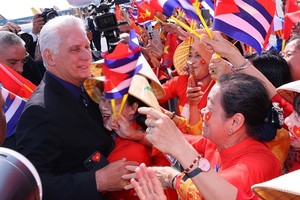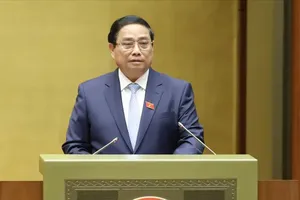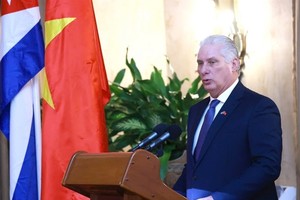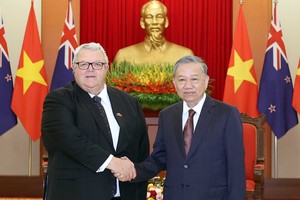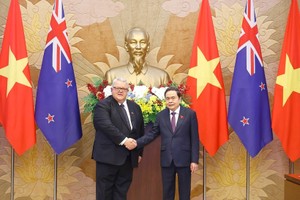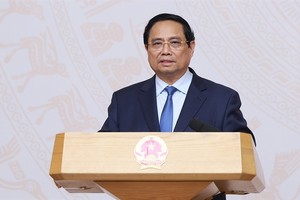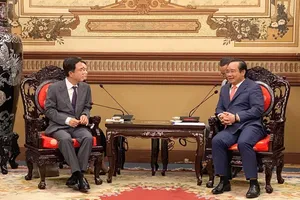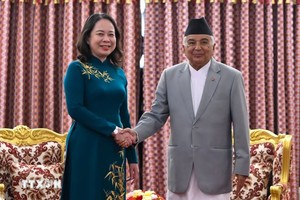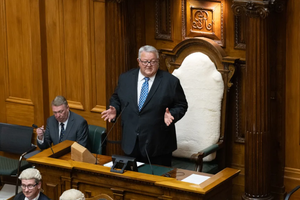Israeli Prime Minister Benjamin Netanyahu returned home to media derision on Thursday, having failed to resolve a bitter row with Washington over the building of Jewish settlements.
He made no statement on arrival, but government spokesman Nir Hefetz insisted Israel and its closest ally had edged closer to an understanding.
"There was progress; there is a narrowing of the gaps between the positions of Israel and the positions of the United States on this issue," he told Israel's Channel Two TV.
Israeli media said a briefing Netanyahu had intended to give his inner forum of seven senior ministers had been postponed until Friday. Netanyahu's office would not comment on plans for such a meeting.
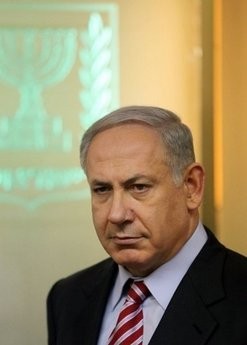
The White House sought to give an upbeat tone to Netanyahu's trip, although it reported no concrete achievements.
"We are making progress on important issues," spokesman Robert Gibbs said as President Barack Obama flew to Iowa on Air Force One.
Gibbs said he had nothing more substantive to report about the meetings, which Washington has declined to describe in detail.
The spat erupted after Netanyahu's government announced 1,600 new housing units for annexed, largely Arab, east Jerusalem as US Vice President Joe Biden was in the region earlier this month hoping to promote peace talks.
The Palestinians see east Jerusalem as the capital of their promised state, and refuse to meet Netanyahu face-to-face without a complete freeze of settlement construction in the occupied territories.
An aide to Palestinian president Mahmud Abbas quoted a US official as saying Netanyahu's US visit did not bridge the divide.
Nabil Abu Rudeina told AFP an assistant to US Middle East envoy George Mitchell told Abbas in Jordan on Thursday that Netanyahu's session with Obama did not clear the way for indirect Israeli-Palestinian talks that Washington is promoting.
"He told Abbas that the meeting between Netanyahu and Obama failed to arrive at an agreement to stop settlement in Jerusalem and the West Bank and to begin indirect talks," Abu Rudeina said, adding that the official said US efforts would continue.
Israeli President Shimon Peres said Israel "apparently did not reach an understanding with the United States of America."
In Washington, Defence Secretary Robert Gates said Israeli-Palestinian tensions -- which the US administration had hoped to ease -- are affecting Washington's national security interests.
"The lack of progress toward Middle East peace is clearly an issue that's exploited by our adversaries in the region," he said.
Before flying home, Netanyahu cancelled planned interviews with reporters after none of the customary photo opportunities with US officials or any formal statements with them.
Israeli daily Maariv called the visit a "humiliation" and said Netanyahu had "received in the White House the treatment reserved for the president of Equatorial Guinea."
Other media reported that Netanyahu's carefully coordinated dressing down was accompanied by demands for wide-ranging measures including the extension of a partial settlement halt and the release of hundreds of Palestinian prisoners.
Gibbs described the discussions as "honest and straightforward," a diplomatic euphemism hinting at tensions, after Netanyahu entered the talks having laid down a hard line on settlement construction in east Jerusalem.
Netanyahu on Tuesday said US demands for a settlement freeze could delay the resumption of Middle East peace talks for a year, a day after a fiery speech in which he said: "Jerusalem is not a settlement."
But as he left Washington, he insisted the two sides had "found a balance between the traditional policy followed by all Israeli governments and our willingness to find ways to revive the the peace process." Chronology: US-Israeli relations since 1991
Obama also discussed the latest Middle East tensions with British Prime Minister Gordon Brown, French President Nicolas Sarkozy and German Chancellor Angela Merkel, the White House said.
The talks by secure video link also focused on another key issue concerning Israel -- Iran.
Many Israelis fear the growing rift with Washington could hinder progress on containing Iran's nuclear programme, which Israel views as its greatest strategic threat. Tehran insists the programme is peaceful.
Israel is widely reported to be the sole, if undeclared, nuclear-armed power in the Middle East. It refuses to confirm or deny having atomic weapons.
